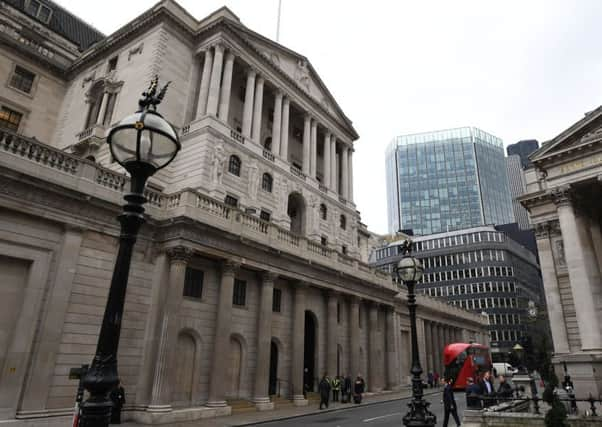Interest rate hike poorly timed for retail says business leader


Speaking after the Bank of England announcement that the base rate is to rise for the first time since 2009 from 0.5% to 0.75%, Retail NI chief executive Glyn Roberts said the timing of the move was poor.
“This is not a welcome development given how weak consumer spending is at the present time,” he said.
Advertisement
Hide AdAdvertisement
Hide Ad“Retail footfall has decreased and a very significant number of large retailers have folded. This increase will certainly not be welcomed by the retail sector”
Neither was it likely to help consumer spending in the province, he added.
“This is also not good news for many hard-pressed mortgage holders to see an increase in their monthly payments, particularly in Northern Ireland, where we already have the lowest discretionary spend.
“The UK economic recovery is at best sluggish and we believe this increase is premature.”
Advertisement
Hide AdAdvertisement
Hide AdStating that the rise had been widely anticipated, Danske Bank chief economist Conor Lambe said it was more a positive force than a negative one.
“Despite this rise, and the view that interest rates are unlikely to return to the levels they were at before the financial crisis anytime soon, monetary policy in the UK remains relatively supportive for most consumers and businesses.
“The MPC continued to imply that future rises in interest rates are likely over the coming years. However, these increases are expected to occur only gradually.”
Richard Ramsey, chief economist for Northern Ireland at Ulster Bank, said it was symbolically important to see the Bank rate finally moving above the emergency level introduced straight after the financial crisis.
Advertisement
Hide AdAdvertisement
Hide Ad“However, for the Northern Ireland households, the impact is perhaps less than the attention that the move has attracted might suggest,” he said.
“Most mortgage holders now have fixed rates deals rather than variable, so many existing mortgage holders won’t therefore be directly impacted. And the reality is that today most under-40s in Northern Ireland don’t actually even have a mortgage, as they are renters rather than homeowners.”